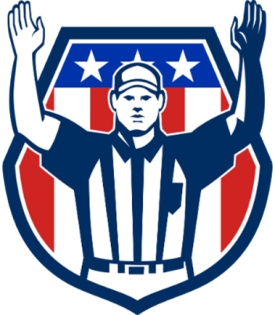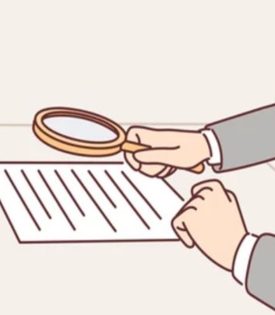


There are three key officials in probate court.
They are 1.) the probate referee, 2.) the probate examiner, and 3.) most importantly, the probate judge.
This blog explains what goes on at the probate courthouse.
Very simply, the probate court referee is responsible for valuing the assets in the estate. The personal representative of the estate completes the inventory and appraisal documents. These forms are handed off to the probate referee within four months after the personal representative receives his or her letters of administration or letters of testamentary.
The probate court appoints a referee who is a neutral third party to place a value on the assets listed in the inventory and appraisal. There is a cash itemization and a non-cash itemization of the estate assets. The real estate is categorized in the non-cash inventory and appraisal form.
I am not an attorney. I cannot give legal advice. None of the content in this blog is meant to be legal advice. If you need an attorney, please contact the California State Bar at 800-843-9053 (in California) or 213-765-1200 (outside California).
The probate court referee must appraise the estate’s assets no later than 60 days after receiving the inventory and appraisal forms from the personal representative. The probate referee does not use traditional real property valuation methods when determining the value of the property. There are only 2 probate court referees in the whole county of Sacramento. They have a lot of cases they need to work on in a relatively short amount of time. In most cases, the Probate referees do not have time to tour the inside of each property. They seldom get out of the car and go inside the house or walk the property. Instead, they do a drive-by valuation and do a comparable market analysis of the neighborhood. In most cases, they base the property value on the appearance of the outside of the house and the neighborhood.
So, the question becomes can this be an issue later on in the probate process? The answer to that question is, it depends. Suppose the house looks great on the outside. It’s in a nice neighborhood. All the public records show it is within the average square footage of living space and an average-sized lot for the neighborhood. There is nothing that stands out in its appearance or attributes. The probate referee does a drive-by and values a house based on what he or she sees from the outside of the house. However, once the house goes onto the market, the highest offer on the house is only half of what the referee indicated on the inventory and appraisal form. This can be a problem. It’s a problem for two reasons. First, the personal representative has a duty to uphold the value of the estate and second, the courts will want to know why it was such a low price for the house. An experienced realtor will know what to do to correct this situation. The realtor will provide the cost of repairs to the probate attorney in advance or if there is no attorney involved, they will provide evidence of the cost of repairs to the personal representative. This information will be submitted to the probate referee and a request to lower the assessed value of the house.
This has happened to us in one instance in all of the probate houses we sold. The probate referee placed a much higher value on the property than what we were able to sell the property for. Remember, when the rubber meets the road; the true value of a property is what buyers are willing to pay in the open market.
In this case, we were able to give the bank’s appraisal report to the probate attorney. This report was completed by a licensed bank appraiser who actually went inside the house and got a much more accurate valuation of the house. The bank’s appraised value was exactly equal to the sales price. But, be aware that the appraisal report is paid for by the buyers. They are not obligated to share this information with the sellers. We were lucky in that the buyers were willing to share this report. We handed it off to the good probate attorney to show to the court. If this happens to you, I recommend getting an accurate appraised value of the property as soon as possible to avoid court delays.
The second official in probate court is the examiner. The examiner is a licensed attorney who works for the probate court. The responsibility of the examiner is to review probate documents for the legal requirements and necessary information before they are shown in court. The probate court examiner generates what is called calendar notes. These notes show whether the documents are approved or if there is a question or problem that needs to be corrected. If there are no questions or no problems in the documents, the calendar notes are recommended for approval. The calendar notes will specify what is required when there are problems or the documents need more information. If the corrections are not done on time for the hearing, the court will reschedule the court date. The calendar notes are posted on the Sacramento Superior Court’s website in the registry of action. These are public records.
The third official in probate court is the judge. Judges are required to be practicing attorneys before they are appointed as judges. They are responsible for signing orders and petitions. The judge reviews the actions taken by the personal representative and reviews the accounting of all of the assets in the estate. When a case is recommended for approval, the judge approves the petition and grants the order for final distribution.
Remember, I am not a probate attorney. I cannot give legal advice. If you have any questions about the real estate portion of the estate going through probate, I’d be glad to help.
Stay tuned for the next blog on the number one question a personal representative asks me —- the dreaded word, “taxes.”
Here is a link to Sacramento County Probate Court for more information:
https://www.saccourt.ca.gov/probate/probate.aspx
Here is a link to my YouTube Channel discussing how probate courts work (don’t laugh, it’s my first YouTube Video):
Here is a link to help with making the best choice in keeping, renting or selling your inherited house:
